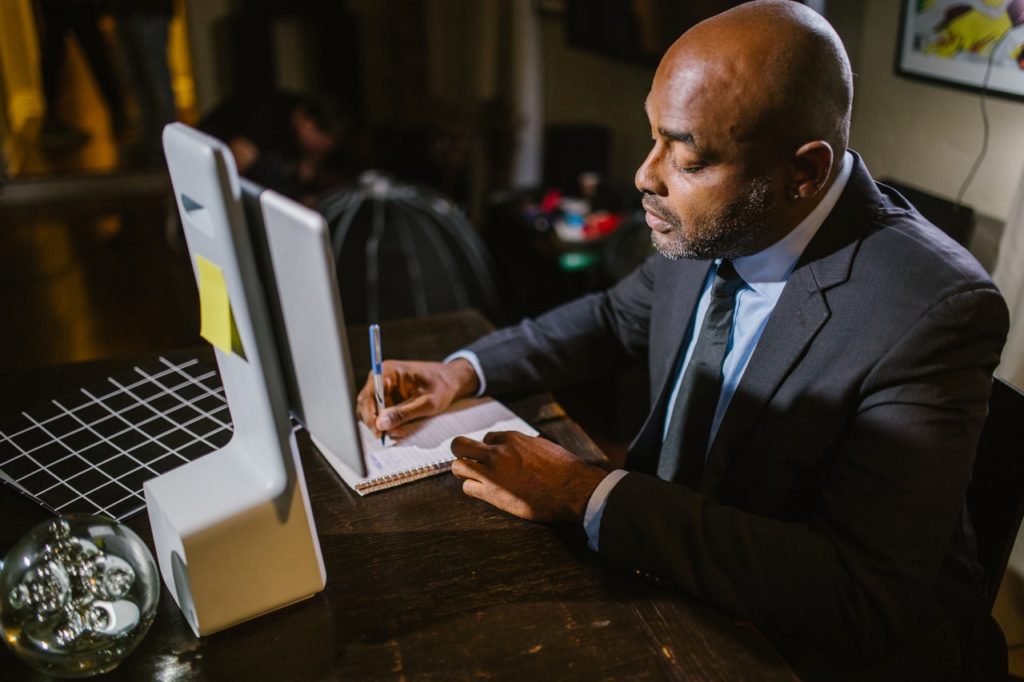
Too many people fail to realize the importance of creating a proper Last Will and Testament. It is simply not enough to download a generic Will and call it a day. It’s called estate planning for a reason. When planning to create your Will, there are a series of questions that you need to ask yourself and answer in order to be properly prepared.
Proper drafting of a Last Will and Testament requires thoughtfulness and planning. The following are some of the most important questions you need answered.
Do I Need a Will, a Trust, or Nothing at All?
We all work hard throughout our lives to build and grow our assets and to provide for our families and loved ones. It is only natural that we want to continue to provide for our loved ones after we have passed on. Figuring out how to protect your estate can be overwhelming and confusing.
You might be surprised to learn that many people believe that they don’t need to have a Will or a Trust. Their understanding is that whatever they have will simply pass to their next of kin.
While theoretically this may be true to a certain extent, having a Will or Trust allows you to have full control over where your money and belongings go and can reduce or eliminate fighting between family and friends. It also allows you to select guardians of your minor children and gift your pets to trusted caretakers.
If you happen to pass without a Will or Trust and have no next of kin, all of your property could end up going to the state instead of your favorite charity or religious organization. In order to make your passing and the distribution of your estate easier for your family and friends, it is always a good idea to have a Will or a Trust in place.
A Will is a document that allows you to determine who gets your assets or belongings, how much they get, and appoints someone to serve as the executor also known as Personal Representative of the estate. In a Will, you can be as specific or general as you want. For example, you can give your baseball card collection to your grandson and your stamp collection to your granddaughter or you can just decide to split all your assets between your grandson and granddaughter.
A Will also allows you to exclude certain people from getting anything. While no one wants to have bad relationships with family members, it is a fact of life. Perhaps you had a brother who abandoned your family and you don’t want him to get anything when you die. You can write him out of the Will.
Each state has its own requirements for drafting a Will. Generally, a Will is something that many people can create on their own with some guidance. Gentreo offers state specific Wills.
While the function of a Living Trust is similar to that of a Will in that it allows you to choose how you distribute your assets, a Trust may allow you to avoid probate. By establishing a Trust, you essentially enable the Trust to hold certain properties and belongings for the beneficiary. Nearly every asset can be held in trust and as a result, many of your assets can avoid the probate process.
Trusts are another tool that can be used for estate planning, however for the majority of Americans a Will is sufficient to satisfy their estate planning needs.
Many people believe that they should select either a Will or a Trust as an estate tool. In reality, Trusts and Wills work hand-in-hand. It is recommended that if you set up a Trust, you should have a Pour-over Will to capture any assets that were not transferred into the Trust.
If you have an average estate, a Will can be a very cost-effective means of making sure that your hard-earned assets and belongings go to the people or organizations that you want them to go to. However, if you have a large estate with a fair amount of value, you may want to try to side-step the probate process by establishing a Living Trust.
For the vast majority of people, a Will is sufficient. Regardless of whether you choose a Will or a Trust, either is a better option than letting the state decide who gets your assets.
Probate is the legal process of having the court approve the Will; and appoint the personal Representative also known as Executor, so that the assets can be distributed as per the instructions in your Will. Many people believe that they should avoid probate at all costs because it is time consuming and expensive. In reality it depends upon your state and the size of your estate.
Additionally, if you have a multi-million dollar estate you can expect the process to be more complicated than if you have a $300,000 estate. In most instances, you can avoid probate by making your accounts “payable-on-death” or naming a beneficiary.
However, if you die without a Will or Trust, the probate process is far more complicated which can result in the court getting involved to handle the distribution of your assets. The bottom line is that while the ease or hassle of probate depends on your state and the size of your estate, you can reduce the burden of the process on your family by having a Will or a Trust.
What Assets Can and Should I Include in My Will?
You should include all assets (such as real property and investments), as well as addressing things like guardianship.
A Last Will and Testament is the most basic way to distribute your assets to your heirs. In general, a Will allows you to gift everything you individually own, which may include a wide array of assets such as vehicles, bank accounts, collectibles and heirlooms, money, and more to your beneficiaries. It should also include assets that are classified as real property. When people talk about real property they are referring to homes, buildings, and land. While distributing real property can be more complicated than other assets, it can and should be listed in your will. As you detail out how your assets will be distributed in your Will, you can be as general or detailed as you like. For example, you can simply divide your entire estate among all of your children in equal shares or you can specify which child gets what amount. You can also gift money to religious organizations or charities.
Another important issue that can be addressed in a Will is guardianship for your minor children. You can designate who will look after your minor children if you pass away. Naming a guardian is very important if you have minor children. Choosing a guardian in your Will ensures that your children will be cared for by people that you select not a judge.
What Assets Should Not Be Included in My Will?
While you can include most of your assets in your will there are some that cannot or should not be included. Real property can generally be included in a Will, but property held in joint tenancy cannot. Property that is held in joint tenancy falls outside of probate. In joint tenancy, when you die, your share of the property passes directly to the surviving joint tenant, regardless of what your Will says.
Property held in a Living Trust is also not distributed via a Will. Property in a Living Trust also avoids probate and passes to the beneficiary of the Trust upon the testator’s death.
Another item that cannot be included in your Will is your life insurance policy. Life insurance names a beneficiary and benefits transfer directly to the beneficiary, outside of probate, when you pass away. An exception to this is if you do not name a beneficiary, your life insurance is distributed to your estate. Similarly, retirement plan proceeds also name a beneficiary and thus, money from a pension, IRA, or 401(k) transfers to the beneficiary when you die. Additionally, bank accounts that are designated payable-on-death go directly to the beneficiary named on the account.

How Will I Distribute My Property and Financial Assets?
The primary reason that people draft a Last Will and Testament is to direct how their assets are distributed. If you have bank accounts, real estate, or other assets with a monetary value, it is important that you decide how you will be distributing them to your beneficiaries.
There are various distribution structures that people use when they draft their Will. For example, some may want their entire estate to pass to their spouse while others might want to specify exactly how much each beneficiary will acquire. In a typical basic Will, an individual might leave their entire estate to their spouse with a secondary beneficiary being their children in equal shares. Let’s say a person’s spouse dies. In this case, his or her children would then split the estate equally. It is important that you think about how you want the assets of your estate distributed.
Do Children, Spouses, Ex-spouses and Others Have Inheritance Rights?
In most states, a person has the right to gift assets and priority to anyone of their choosing. However, there are some states that require spouses, children, or others to inherit a portion of your estate despite provision in your Will to the contrary. Certain states, including Arizona, California, Louisiana, Nevada, New Mexico, and a few others are considered community property states. These states have their own rules about what constitutes community property and, in some instances, can overrule the distribution plan in a person’s Will. In community property states, each spouse automatically owns half of what either one earned during the marriage. In order to prevent this each spouse would have to sign a specific agreement waiving their community property rights.
In non-community property states, there is no rule concerning marital property. However, a spouse may have a right to claim up to one-half of the deceased spouse’s estate even if the Will tries to disinherit the spouse. In some states, the amount the surviving spouse can claim depends on how long the couple was married.
It is important to note that the requirements and restrictions listed above may not kick in automatically. In most instances, if a spouse is accepting of the distribution under the Will there is no issue. Generally, the dissatisfied spouse has to challenge the distribution in the courts.
Generally, children have no right to inherit anything from their parents. In certain limited circumstances, however, children may be entitled to claim a share of a deceased parent's property.
Another special circumstance is where a parent created a Will and specifically named his or her two children as heirs to the estate. Then the person has a third child but inadvertently fails to update their Will to include the newest child. In certain states, the courts will determine that the parent did not intend to exclude the third child and will adjust the distribution to include all of the children. This is a prime example of why, if you want to disinherit a child or other family member, that you include a specific clause in your Will explaining your desire to disinherit a particular person.
In general, when you get divorced, any gifts or inheritance to your ex-spouse, unless specifically provided, are automatically revoked. A good rule of thumb is to write a new Will as soon as you get divorced. You will be able to leave your ex-spouse off the Will and they will typically have no rights to recover anything.
Most people who get divorced would not want their ex-spouse to recover anything and for that reason it is important to have a Will and to keep it updated.
Who Will Acquire My Sentimental Possessions?
Often when people are planning a Will, they fail to consider specific sentimental or heirloom items that are important to them. Usually, people simply lump everything into their general estate and give it to their spouse or split it between or among their children.
However, for some beneficiaries of a Will, especially children, sentimental items may have more value than money. If you have heirloom or sentimental items, you should think about whom would most appreciate that gift and specify it in your Will. For instance, if your daughter always commented about a particular necklace or pendant, you may want to specifically indicate in your Will that those items pass to your daughter.
Do I Want To Donate To a Charity?
For some people, certain foundations, religious organizations or other charitable entities play a very rich and meaningful role in their lives. If you want part of your estate to be designated for your charity, you should carve out a provision in your Will specifying where and how much the organization should get.

Do I Need to Name Guardians for My Minor Children?
Many couples with young children fail to identify or name a guardian for their children. Naming a guardian in your Will for your minor children is the only way to ensure they are cared for by the person(s) of your choosing if something happens to you. Even if you are establishing a separate Trust, naming guardians in the Will can eliminate confusion in the future for further legal and court involvement. Also in your Will, you are able to name alternate choices to serve as guardian in case your first choice(s) cannot serve.
Can I Gift Money or Assets In My Will?
Yes you can give money or assets in your Will.
Gifts to animals are not enforceable. However, you can name individuals who will take care of your pet when you pass. You can also leave money to the person who will be taking your pet as a gift for them for caring for your pet.
What If I Have a Disabled Child or Need to Arrange for Care of Another Elderly Person?
While it is possible to create provisions in your Will for the care of a disabled person, it is not the best device to arrange for care. When you are trying to arrange care for a disabled person it is better to set up a Trust. In fact, there are a number of trusts that are specific to special needs individuals.
Can I Include My Funeral Instructions in My Will?
Many people include funeral instructions in their Will. While there is nothing wrong with doing so, it may not be enough to include your funeral instructions in the Will. In some instances, people don’t look at the Will until after the funeral. If you are going to include funeral instructions in your Will, make sure that you provide instructions to your loved ones separate from the Will.
Who Will Be the Executor or Personal Representative of My Will?
Selecting the executor is a process that requires some thought. Your spouse, best friend, or sibling may or may not be the best person for the job. While a beneficiary of a Will can also serve as an executor, you need to make sure that the person you are selecting is qualified to act on your behalf.
The person must be honest, willing to work, patient and attentive to detail. Aside from the physical aspects of administering your estate, the person you select must be mentally and emotionally able to handle the job and execute your wishes as expressed in your Will, not his or hers.
Once you have selected your primary executor, you may want to consider a secondary or successor executor as a backup if the primary executor becomes unable to serve.
I'm Ready to Create My Will
When you begin creating your Will, it is important that you take time to think about how you want your estate distributed and assets managed. While it’s easy to download a generic Will, you want to make sure that you are giving your estate documents the detail and attention that they deserve. When creating your Will, make sure you ask and answer specific questions.
Your Last Will and Testament is specific to you and should not mirror anyone else’s. Let us at Gentreo help you create a custom and affordable family estate or health plan, including a Will.
Gentreo is not a law firm or a substitute for a law firm, or attorney, or an attorney’s advice or recommendation.











